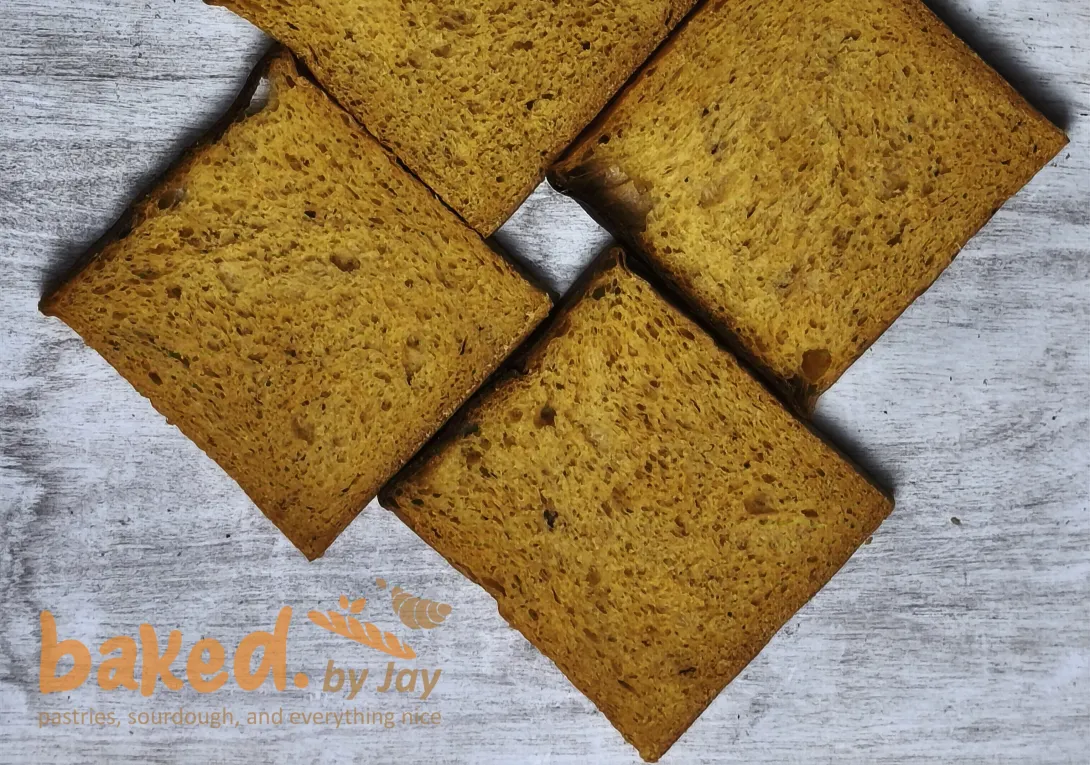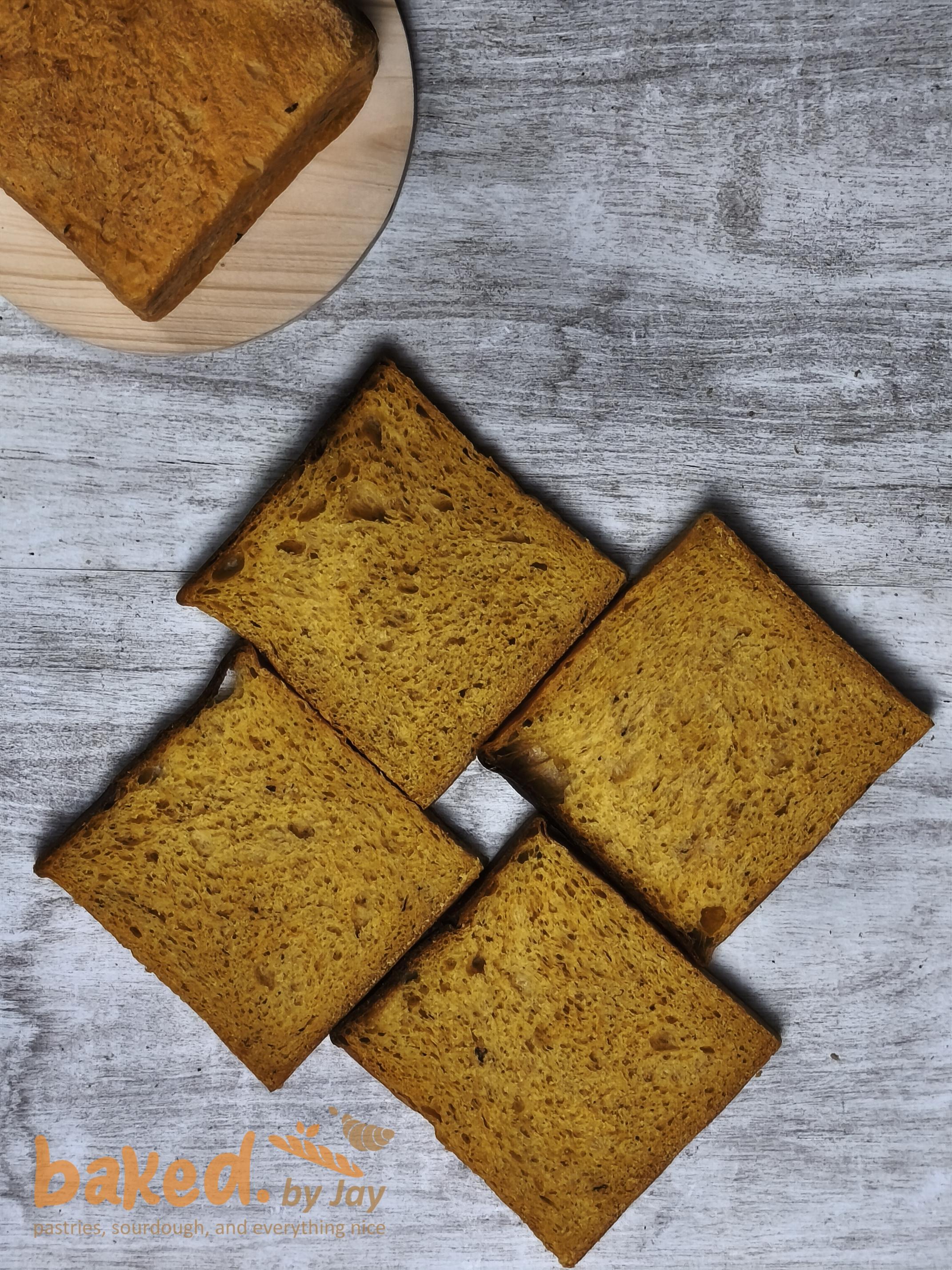
I've been wanting to take Cariah Marey on a test for enriched loaf. I mean what's even the point of making sweet starter if not making true sourdough enriched dough at all?
Her current state is 8:4:2:1 fine bran:water:skim milk powder:sugar. This is 75% hydration no-water-added sweet potato milk loaf. Basically my usual potato loaf, but less hydration (which means less potato puree), to 'test the water' (both metaphorically and literally) before going all in.

The fermentation schedule was such a roller coaster. I needed to practice a variation of my viennoiserie product line the same time I mixed the dough, so yeah. The 60% hydration levain took 24 hours to make (I ran out of starter, so only 6 grams for 512 grams of total levain flour. 45% PFF). The final proof was terrifyingly slow. It was 11 hours at room temperature, then I retarded them for the need of peaceful sleep, then another 2 hours room temperature proof. It worked! It worked!
The levain was a combo of white flour and sweet potato puree (to provide hydration).
They were on the verge of overproofing, because I had to multitask with my workout. I had to use my tiny electric oven, and I didn't have an hour to preheat my stone floored deck oven.
I put all the butter, powdered milk and sugar in the levain. I added vital wheat gluten to make 13% wheat protein dough, assuming VWG contains 75% protein.
I found it interesting that the dough felt a lot stiffer than my 65% hydration test white milk loaf. The white ones felt like 75% hydration baguette dough. I highly recommend using pureed steamed starchy roots if you are after the texture of Japanese milk loaves, with the easy-handling of American sandwich loaves.
Verdict
This was my third attempt actually. The first two beings were white loaves. They were weirdly and pleasantly cheesy. Amazing how the same exact starter would produce completely different results by employing different treatments.
And for these ones? I didn't notice any noticeable flavor difference between my usual hybrid sweet potato loaves. Not worse, I just expected a sort of novelty. And honestly, I think the white ones taste a lot better, fermentation-wise. But the texture is slightly fluffier than my usual hybrid loaves with the same hydration.
They were surprisingly mild despite taking 2 days of fermentation.
I will try to split the levain making schedule into 2 stages, and see what will happen. Hopefully can get to brioche soon!
This experience unlocked a new category of skillset on my part, I can see it's value for the future to come.
Jay
- WanyeKest's Blog
- Log in or register to post comments
Jay, those are perfect squares of bread, marvellous!
Benny
Truth to be told Benny, I'm still scratching my head over the fact that these loaves survived 37 hours of room temperature fermentation 😄
Such a learning experience for me
Jay
Breads look soft and delicious Jay. Colour is inviting too.
Did you use a lot of sugar, milk and butter? I assume at least a lot of sugar if the levain took so long.
-Jon
Thanks Jon, appreciate it!
That's intentional :)
The reason behind that is, since any information I learned from this batch (and few batches to come) is to be applied to my 85% hydration milk loaf, and since high hydration dough is a lot more prone to overfermentation, I wanted to shift the amount of time taken to ferment more as stiff dough, so the final fermentation (as wetter dough) will take less time. It worked on previous 2 white batches, but I messed this one up 😂
Since my starter was already osmotolerant to sugar, apparently it's not too tolerant to butter
I will do a number of fixes to the next batch, including 2 stages levain and much higher PFF%. But I need to take a step back to all white flour first. I'm so determined to figure the fermentation schedule out!
(Note: I assumed skim milk powder is about 50% lactose, which is sugar)
Jay